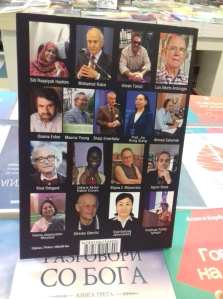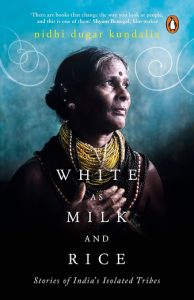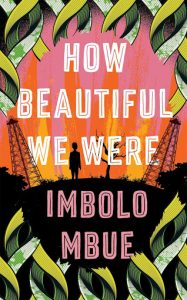17 poets and 55 poems, these are the numbers of this verse, in short, strongly desired by the Malaysian poet Rokiah Hashim.

The title already contains the ultimate essence: peace and harmony as languages proper to poetry, as an open hand to welcome differences and to change the world. In this historical moment of wild globalization and slow, inexorable destruction of our planet, of an ever-deeper gap between wealth and absolute poverty, of wars, devastation and new obscure nationalisms, only in comparison with the other is one becoming oneself. In a world where compassion and humanity have become rare commodities, where death and suffering bounce a thousand times on the virtual pages of our phones without touching consciences anymore, “Peace be upon you, Davos” is a complaint and at the same time a dialogue open, respecting diversity, in the heartfelt longing for peace and love that flow between words and verses.
The proposed works are poetic expression of universal conscience but also a manifestation of personal, human and intellectual needs. Distinct in language and yet close in the expression of feeling, the poetic voices that make up this anthology come from individual stories and multiform artistic paths, from different cultures, languages and geographical areas. Move closer to each other, the individual sections make dialogue between the dissimilar voices of poets: fragments of memory, screaming realities, revealed intimate expressions. They are testimonies of love, cries of suffering, implacable warnings, in a word they are signs of life in its entirety. The immaterial boundary line between a poet and another does not mark a caesura. Instead, it becomes a mixture and communion, the single anxiety becomes choral: it turns into a moment of profound encounter to tell the beauty and pain of the world, to expand the boundaries of the visible, there where the gaze becomes perception.
Some poems are strong, direct denunciations, describe conflicts, tell names, lives, such as the poems of SITI RUQAIYAH HASHIM (Malaysia) that reveals the extremes, wars decided at the table for the need of a few, or the warning of ZDRAVKO ODORCIC (Croatia) which reminds us how the smell of the Holocaust still burns on the skin and in the burned souls, as man is the only being that destroys himself. Similarly, in the verses of MOHAMED ABDUL AZIZ RABIE (Jericho, lives in Washington, D.C.), injustices, repressions and suffering have no boundaries; the real war is that of the rich and powerful countries, which subjugate the poor with their own interests. Rabie urges us to tell every story, to scream poverty, because we can and must still dream: “to keep the dream alive and true, we need to join hand in hand.”
Other verses run through History passing through the story and the symbols of personal realities. This is how LUIS ALBERTO AMBROGGIO (Argentina) narrates the voices of the past that run after each other, private memories become milestones, roots and sources of a genetic journey, a line that runs to the future. AHMAD ZAKARNEH of Palestinian origin, telling his life for decades, symbolically intertwines intimately with the larger History, in silence. BILJANA Z. BILJANOVSKA (Macedonia) in a heartfelt way presents us with the ancient voice, the strength and ethics of the fathers, of the ancestors who still do not give up today. It is a powerful voice, that of OSAMA ESBER, a Syrian poet, who paints with profound empathy the Syrian mothers who bear the weight of absence in the withered belly, and those “strange fruits” that again hang from the trees (as already sadly happened in a still recent in the United States). ROKIAH HASHIM, reminds us that it is in the small that peace is born, from brother to brother, in the kissed hand of the dying father, in elegiac love.
Even in style and poetic structure the differences become dialogue of creativity. In full freedom of different visions and codes, the poets represented here express themselves with different techniques and languages, from accusations to symbolism, from elliptical to narrative and figurative thought. Thus the lyrical and allegorical intonation converses with geometries of sculpted words.
ISTVAN TURZCI (Hungary) takes us by the hand with delicacy and lyricism. His short prose stories are made up of intimate, descriptive moments. The poet finds himself alone in front of himself and is immersed in nature, an isomer of his own feeling. Delicate and powerful at the same time, his words leave us suspended just in the place where poetry is born, as when, for example, he looks at a deer in the eye. Time stands still and past and present merge together. AGRON SH
“Peace Be Upon You, Davos” – poetic anthology published by Rokiah Hashim – by Lucilla Trapazzo
Published 11 September 2019 by Lucilla Trapazzo
Peace be upon You – korice
“Peace Be Upon You, Davos” – a poetic anthology published by Rokiah binti Hashim
(2019, ed. Dream Culture, Zagreb, Croatia)




